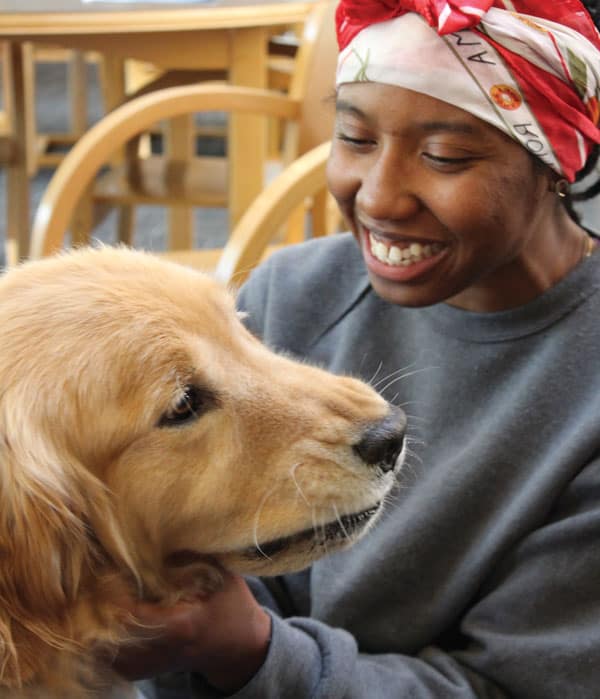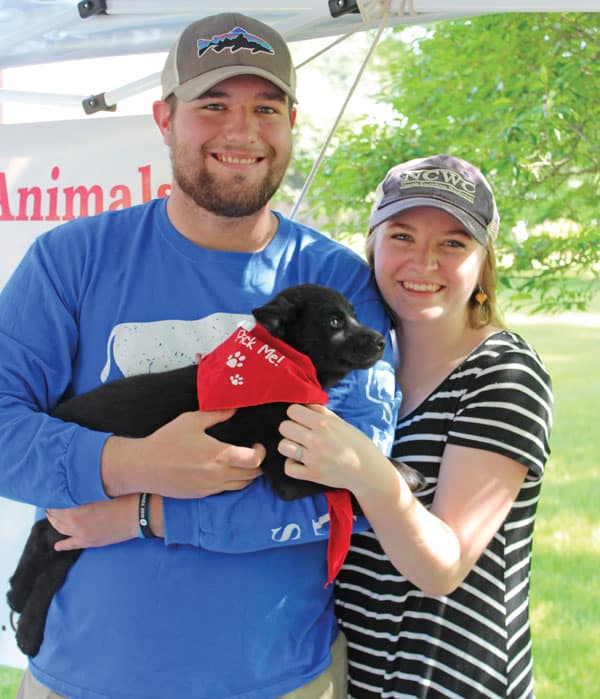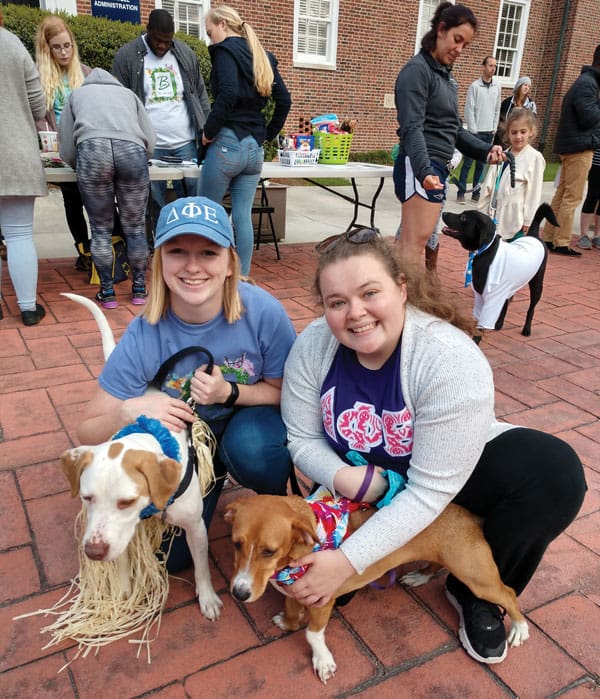Dogs and other animals are permitted in residence halls only with prior approval in accordance with our published Pet-Friendly Housing Policy. All the limitations in this section apply to all dogs on campus. The policy regarding other dogs on campus may be found on this webpage.
Exotic pets such as snakes, other reptiles, ferrets, wolf hybrids, pigs, birds, etc., are prohibited from campus.
Guidelines for Dogs and Cats on Campus
It is the policy of North Carolina Wesleyan University to provide a safe, non-threatening, and healthy campus environment for our faculty, staff, students, vendors, and guests. To establish a tradition of being a dog-friendly campus while at the same time recognizing that allowing dogs on campus can create certain challenges, the following guidelines are adopted to effectuate a balanced approach to establishing a dog-friendly campus. These guidelines are intended to respond to concerns of health (especially allergies), fear, and safety regarding dogs on campus.
I. Pet-Owner General Campus Guidelines
- All dogs in compliance with this policy may be allowed on campus for occasional short visits in the company of the owner in “dog-friendly” areas, defined as the outer walking trail and sidewalks around campus. Any indoor areas or athletic fields are not considered dog-friendly unless outlined in the subsequent sections based on the category of the dog.
- Dogs at athletic events are not permitted at any time in bleacher sections, including the front row, unless they are in a pet cage. Attendees should plan on bringing their own chairs or seat or sitting outside the bleacher areas with pets.
- Dogs are to be under the control of their owners at all times. Dogs should be leashed (standard six feet in length or otherwise appropriately restrained or caged) unless leashing directly impedes a service dog’s ability to perform its trained task(s).
- All dogs must be healthy and pose no reasonable health risk to humans as carriers of active infections, parasites, etc. Dog owners must comply with all state of NC and local laws and ordinances governing licensing, vaccinations, and control and must provide proof of compliance upon request. All dogs should have their vaccine ID tag visible, or a copy of recent vaccine records should be carried with the owner while on campus with the canine(s).
- Dogs must be on a flea and tick program. The owner must decide the best type of flea and tick program for their dog and arrange for such treatment at their own expense. Dog owners must also provide proof of flea prevention upon request.
- Owners should be aware of their dog’s behavior and considerate of others. Excessive noise, barking, or other disruptive behavior is not permitted and may result in the dog not being permitted on campus until able to meet acceptable standards of behavior. Owners may be asked to remove the dog from events or campus for behavioral issues.
- Owners are personally responsible for any damage the dog causes to University property and for any injuries or illnesses caused by their dog.
The owner must ensure that their pet’s waste is appropriately cleaned up and disposed of. Failure to pick up after an animal will cause the University to ask for the animal to be removed. - North Carolina Wesleyan University, at its sole discretion, except as required by law, retains the right to deny access to any canine.
II. Service Dogs
In order to ensure access for individuals with disabilities, service dogs are permitted on the premises per the Americans with Disabilities Act (ADA) and Section 504 of the Rehabilitation Act of 1973. ADA compliance as it relates to students is to be coordinated through the ADA Coordinator. All faculty and staff inquiries can be directed to the Office of Human Resources. Service dogs have access to all buildings and facilities unless they are behaving inappropriately, are not housebroken, or if such access poses a direct threat to the health and safety of others, and that threat cannot be eliminated or reduced by a reasonable modification to other policies and practices. Appropriate alternative accommodations will be made to provide the individual with access if the dog is unable to accompany them. For example, a lab course may require a sterile/clean working environment, and the presence of the service dog may directly impact the ability to maintain a sterile/clean working environment. According to the ADA, fear of dogs or allergies does not constitute a “direct threat” and cannot be grounds for denying access to a service dog.
III. Reporting Concerns
Any dog incident that involves physical harm must be immediately reported to Campus Security. The Director of Campus Safety or designee has the authority to suspend the dog’s on-campus privilege, pending investigation of any such incident, and will also notify the Office of Human Resources (Rocky Mount Campus) of any injury. When appropriate, Campus Security may also contact the City of Rocky Mount Animal Control to assist in the handling of dog incidents. Any case involving an animal bite that results in an injury to any person will be reported to the local Police Department if required under City or County Ordinance.
It is the goal of the University to encourage any individual who is uncomfortable with a particular dog to be certain that his/her needs or feelings are communicated appropriately. Whenever reasonable, these issues should be discussed with the dog owner or reported to Campus Security. If involving an employee, it should be communicated to the Office of Human Resources.
Any student in violation of this policy may be subject to procedures within the North Carolina Wesleyan University Code of Conduct Standards.







